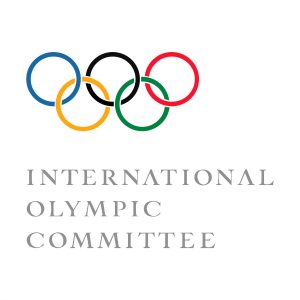 Doing a good job of managing your total load will reduce the likelihood of illness and injury significantly. This post follows our recent summary of the International Olympic Committee (IOC)’s consensus statement on loading in sport and focuses specifically on their practical recommendations.
Doing a good job of managing your total load will reduce the likelihood of illness and injury significantly. This post follows our recent summary of the International Olympic Committee (IOC)’s consensus statement on loading in sport and focuses specifically on their practical recommendations.
Avoid catching things off other people
Your immune system may be weakened during periods of heavy training and the run-up to competition. Therefore, it’s important to:
- Minimise contact with infected people. Tips to do so include avoiding crowded areas and shaking hands, especially with people who are coughing, sneezing or have a runny nose.
- Wash your hands regularly with soap and water. This is especially important before meals. Carry hand washing gel in unfamiliar surroundings.
- Avoid putting your hands to your eyes and nose.
- Don’t share drinking bottles, cutlery, etc. and do wash these thoroughly after each use.
- When purchasing drinks, check the bottles are sealed, wash and peel fruit and veg before eating especially abroad.
- Wear flip flops when using public locker rooms, pools and showers.
Reduce stress on your immune system
- Ensure good quality sleep with correct sleep hygiene and strategic 20 min naps.
- Avoid excessive alcohol which impairs immune function for several hours.
- Arrange single room accommodation during competition if you have known susceptibility to respiratory tract infections. Consider zinc lozenges at the time when symptoms occur.
- Ensure sufficient carb intake during training.
- Eat carbs and protein (~20g) soon after workouts.
- Ensure sufficient vitamin D with supplements if needed during winter months.
- Probiotics such as Lactobacillus, fruit, quercetin and green tea may reduce risk of illness.
Manage your training and competition load
- Making big changes in your current training load in either direction can increase your risk of illness and injury. To avoid this ensure changes are progressive and gradual.
- Everyone responds differently to changes in training load, therefore it should always be individualized.
- Training load should be monitored using external (pace, powers, speed, time) and internal (heart rate, RPE) measures.
- Recovery should be monitored using a combination of objective (e.g. RHR, HRV, sleep score) and subjective (diet, mood and fatigue/soreness scores) measures.
- Early signs of overreaching or illness can be identified by analysis of recovery data.
- Recovery strategies include nutrition, hydration, sleep, rest, active rest, relaxation strategies and emotional support.
- Competition load must also be managed.
Psychological load management
- Higher psychological stress reduces the tolerable load from training.
- Athletes should become familiar with stress management, goal setting and confidence building techniques. This can be via education or self-help books and online resources.
- Athletes should develop resilience strategies that help them cope when not all goes to plan.
- Periodically assessing total life stress is important to appropriately reduce training load or monotony in order to prevent fatigue, illness or burnout.
We hope you find this summary of recommendations useful and can improve your training strategy with the tips included. A great way to monitor and analyse recovery is to use ithlete Pro. Tracking morning heart rate variability provides a great barometer of response to total load and with ithlete you can put additional context to that (as suggested in the IOC recommendations above) with metrics including training load, sleep, diet and more.

Thank you Simon for sharing ! Most comprehensive article on the subject !